Located on the slopes of the mountains, at the foot of the magnificent Mount Damavand, Tehran has been Iran’s capital city for over 200 years now. Nearly 14 million people live in the Tehran metropolitan area. Erected in recent centuries, Tehran’s palaces and museums receive millions of Iranian and foreign visitors every year. Tehran is an excellent starting point for your trip to Iran before heading to Kashan, Yazd, Isfahan, and Shiraz. Check out my selection of the best sights in Tehran.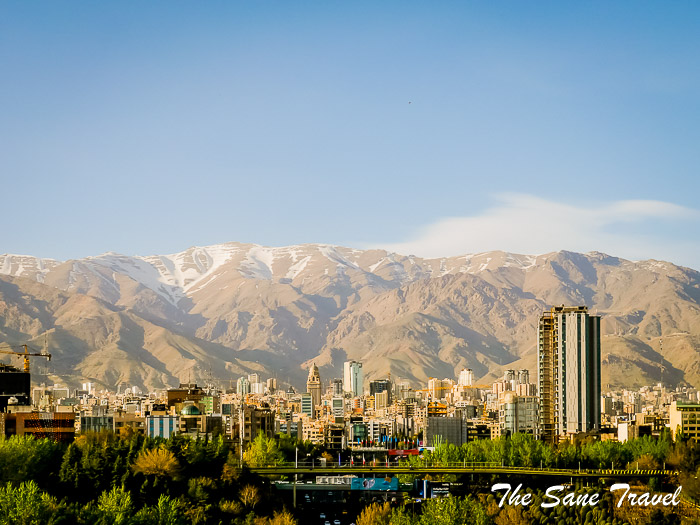
Golestan Palace
Golestan Heritage Museum Palace, which has been inscribed on the UNESCO World Heritage List, was the royal citadel of Shah Abbas Safavid in the late 16th and early 17th centuries. At that time, Tehran was just a small village. The walled Golestan Palace became the seat of government of the Qajar dynasty, which came into power in the late 18th century and made Teheran the capital of the country. It incorporates traditional Persian arts and elements of 18th-century architecture and technology. While being the seat of government, Golestan Palace was also a residential and recreational complex. You can spend half a day admiring the palace, with its spectacular halls, chambers, museums, and gardens. 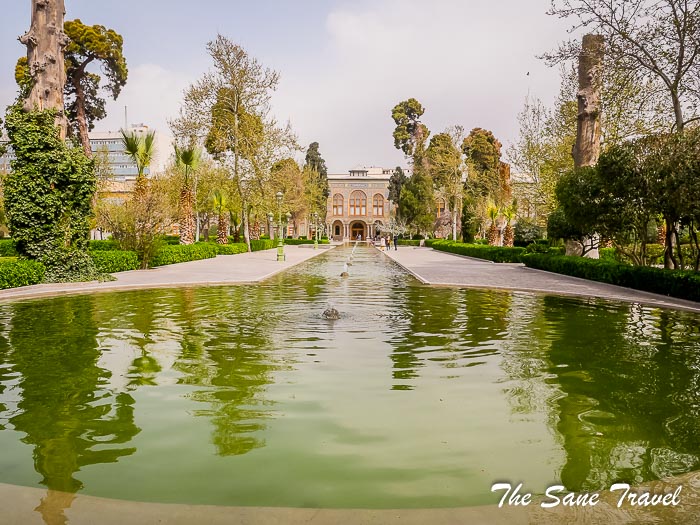
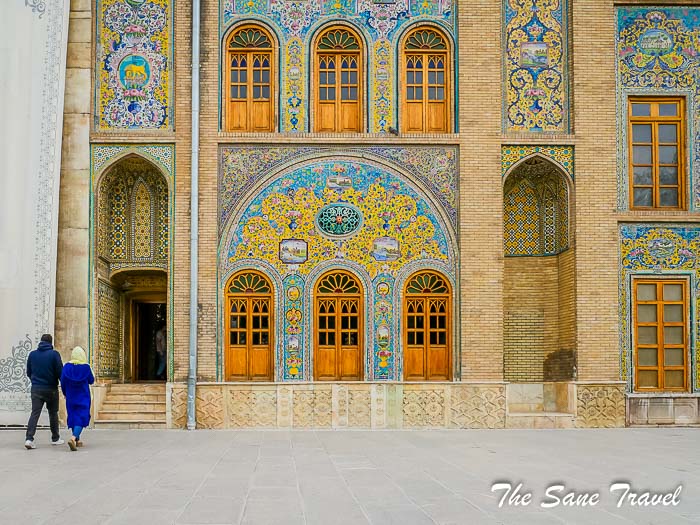
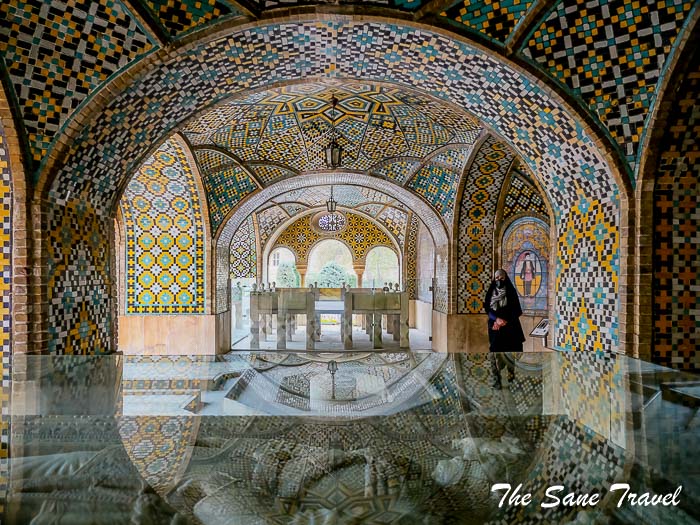
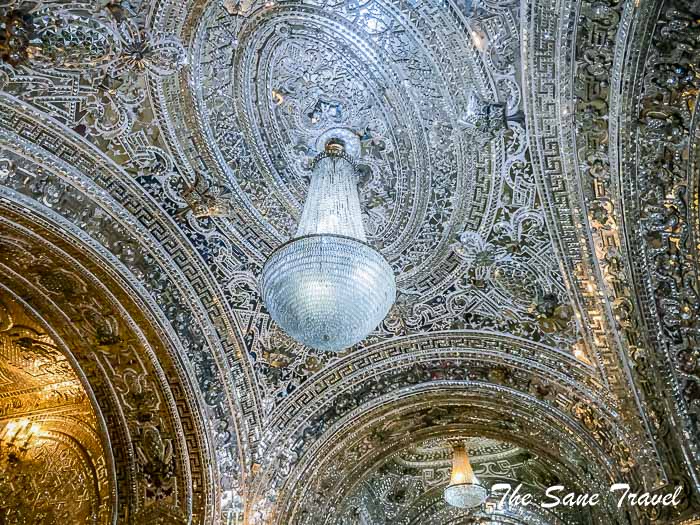
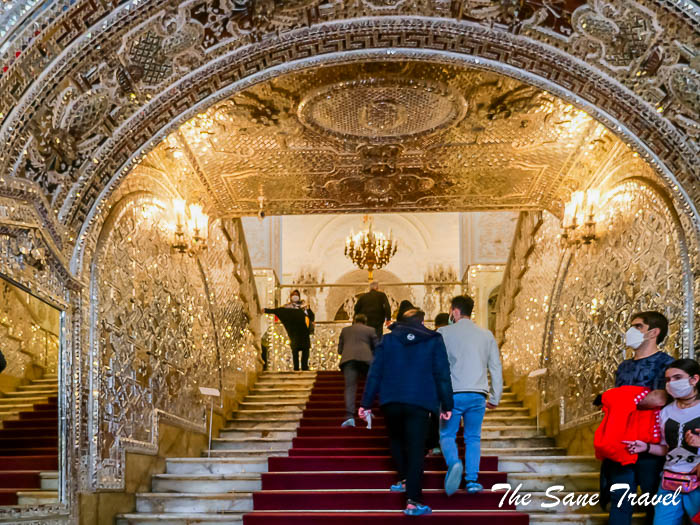
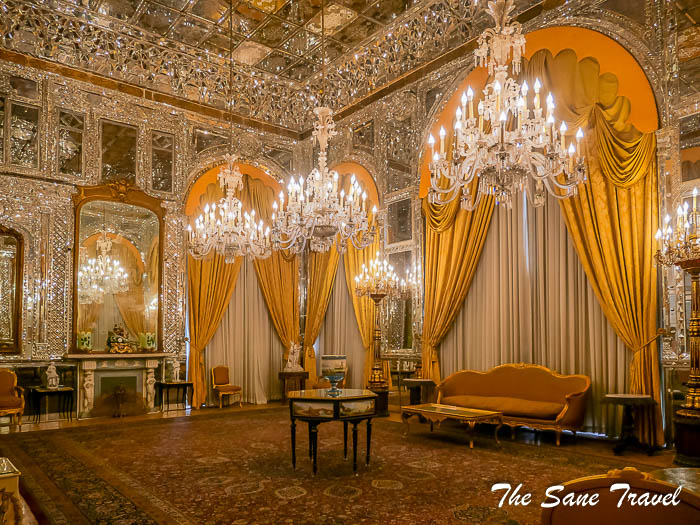 A few of the sites you won’t want to miss are the stunning Karim Khani nook, which was the former residence of the founder of the Zand dynasty in the middle of the 18th century, and the brilliant Mirror Hall, which was used for royal weddings and coronations. You can relax by the gorgeous pond in the main garden after walking around. Next to the palace, you will also see the bustling Tehran Grand Bazaar, which is a great place to get a glimpse of local life.
A few of the sites you won’t want to miss are the stunning Karim Khani nook, which was the former residence of the founder of the Zand dynasty in the middle of the 18th century, and the brilliant Mirror Hall, which was used for royal weddings and coronations. You can relax by the gorgeous pond in the main garden after walking around. Next to the palace, you will also see the bustling Tehran Grand Bazaar, which is a great place to get a glimpse of local life.
The Grand Bazaar
The Grand Bazaar is an old historic bazaar in Tehran. With several entrances, it is split into several corridors over 10 kilometres in length, each specialising in different types of goods. It looks like an imaginary old city full of twists and turns and labyrinth corridors. Some visitors refer to it as “a city within a city” because it includes several mosques, guesthouses, banks, and once-thriving caravansaries. You can find jewellery, watches, clothes, spices, nuts, toys, stationery, and almost anything that comes to mind in the bazaar.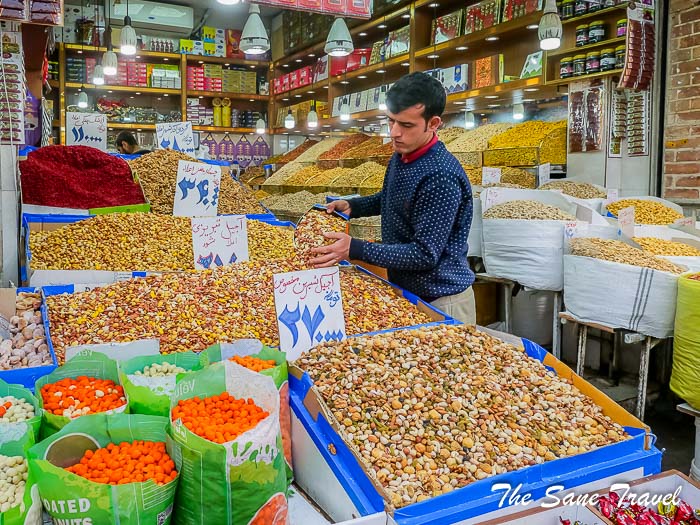
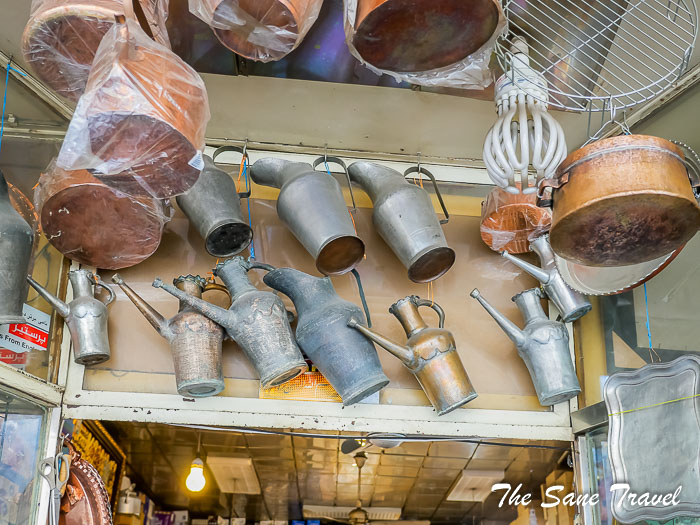
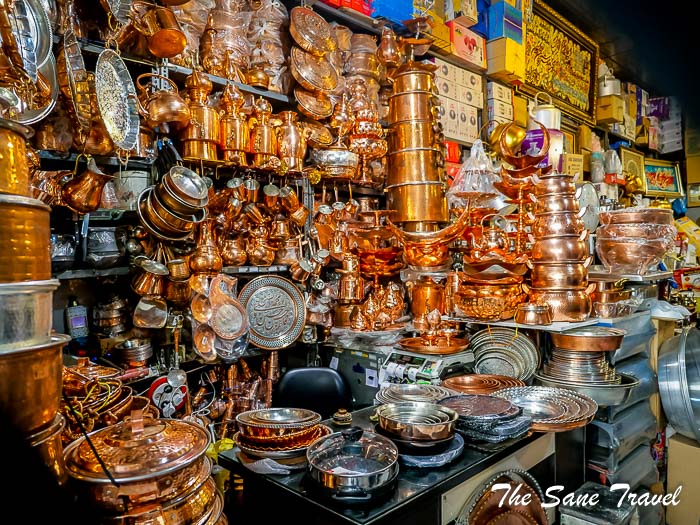 The purpose of many people visiting is to have a meal at the restaurants in the bazaar. There are several famous traditional restaurants and cafes that serve the most delicious Persian meals and dishes. The majority of stores in the Grand Bazaar are open between 9 a.m. and 5 p.m. It is better to go to the bazaar by public transport. The best way to reach it is to use the subway and go to 15 Khordad Street. And, for sure, you have to learn to read numbers in Farsi to understand the prices of goods.
The purpose of many people visiting is to have a meal at the restaurants in the bazaar. There are several famous traditional restaurants and cafes that serve the most delicious Persian meals and dishes. The majority of stores in the Grand Bazaar are open between 9 a.m. and 5 p.m. It is better to go to the bazaar by public transport. The best way to reach it is to use the subway and go to 15 Khordad Street. And, for sure, you have to learn to read numbers in Farsi to understand the prices of goods.
Iran National Museum
The National Museum of Iran is the main archaeological museum of Iran and the brainchild of André Godard, the French archaeologist and architect who was its first director. The museum consists of the Iran Bastan Museum and the Museum of Islamic Archaeology and Art of Iran, as well as research departments, the conservation department, the library and the archives. This museum houses the largest collections of archaeological objects in the country. Dating from the Paleolithic to the late Islamic period, the collections represent more than a million years of human settlement and cultural achievement in Iran. Some of the most important objects in the museum are Paleolithic ornaments, clay and human figurines from the early village communities, the earliest evidence of administrative technology and writing from the 4th millennium BC, Persepolis stone reliefs, a Parthian life-size bronze statue of the “Shami Man”, and a natural mummy of a man called “Salt Man”.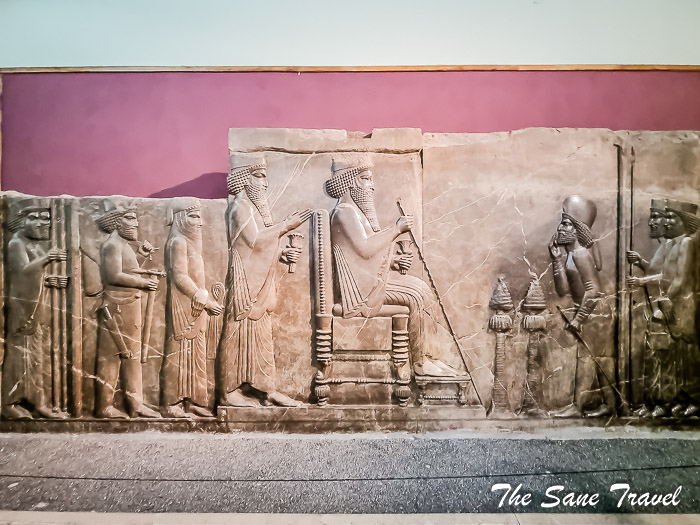
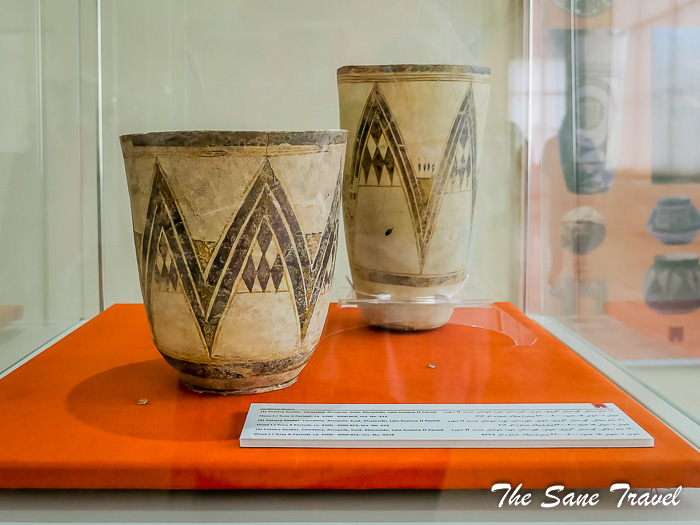
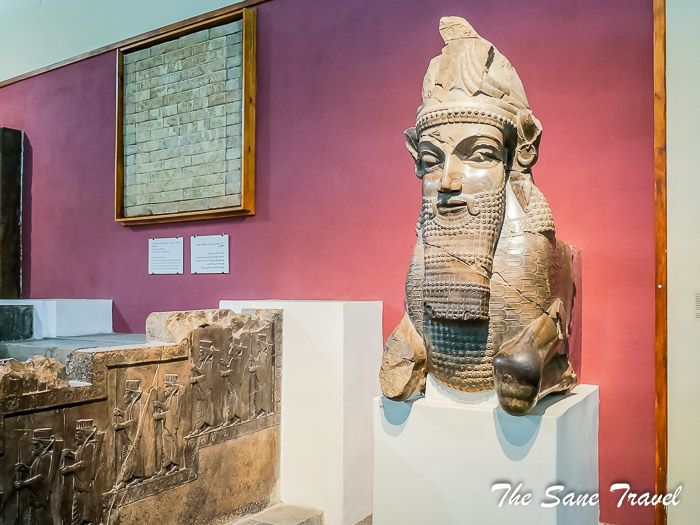
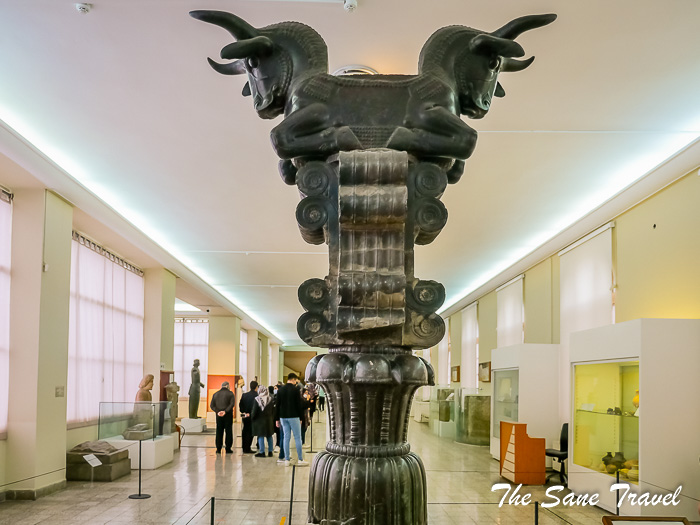 By the way, did you know that this museum has its own goddess of fertility figurine, called Venus of Tepe Sarab from 6500 BC?
By the way, did you know that this museum has its own goddess of fertility figurine, called Venus of Tepe Sarab from 6500 BC?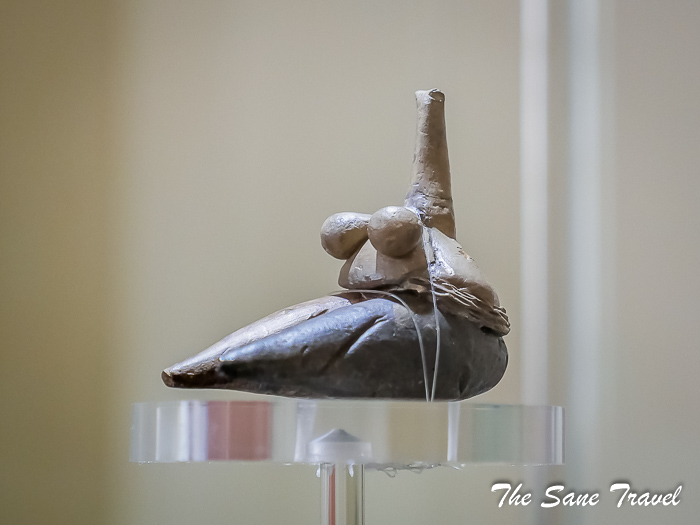
SaadAbad Complex
The palatial ensemble of SaadAbad, which covers about 110 hectares, is located in the north of Tehran, at the foothills of Mount Tochal. In the 1970s, Mohammad-Reza Shah and his royal family became the residents of SaadAbad Palace. They extended the complex by constructing 18 small and large palaces in different architectural styles, including Ahamad Shahi Palace, Shahvand Palace (the current Green Museum, the summer residence of Pahlavi I), the White Palace (Mellat Palace- Museum, the summer residence of Pahlavi II), the Black Palace (the current Museum of Fine Arts), Princess Shams Palace (the Museum of Royal Clothing). In addition to palaces and buildings, there are many other facilities and installations such as poultry and dairy halls, banana garden and greenhouses, pools, fountains, tennis courts and bowling hall, as well as open cinema and theatre halls. The current presidential palace of Iran is adjacent to SaadAbad Palace.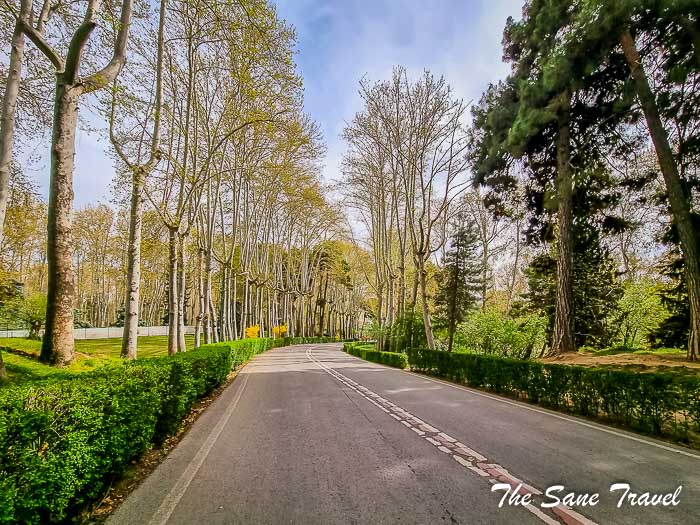
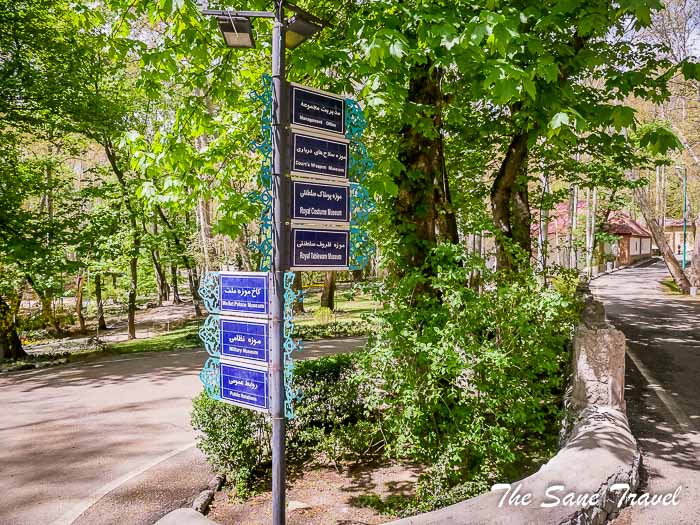
The White Palace (Kakh-e Sefid)
If you enter the complex from the Zaferanieh gate, the White Palace is within walking distance. This white two-storey building, which is the most luxurious palace of the ensemble, used to be the summer residence of Mohammad Reza Shah and his queen, Farah. The White Palace, now converted into a National Museum, oscillates between the austerity of exteriors and very rich interiors.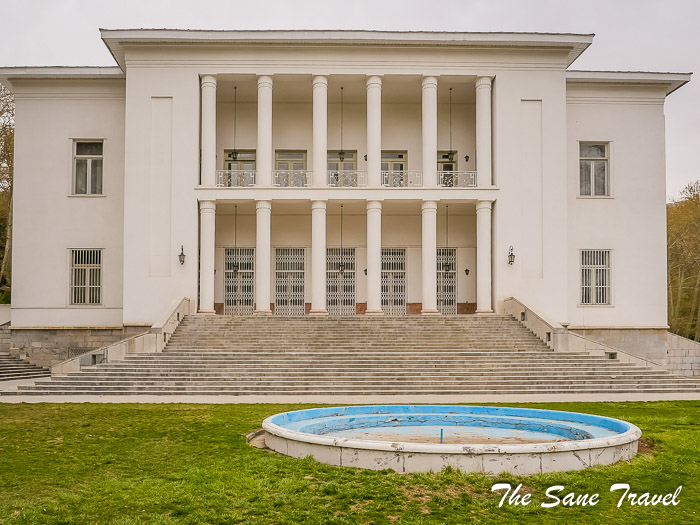 At the bottom of the monumental stairs remains a huge pair of bronze boots, the only remnant of a statue of Reza Shah, destroyed during the revolution.
At the bottom of the monumental stairs remains a huge pair of bronze boots, the only remnant of a statue of Reza Shah, destroyed during the revolution.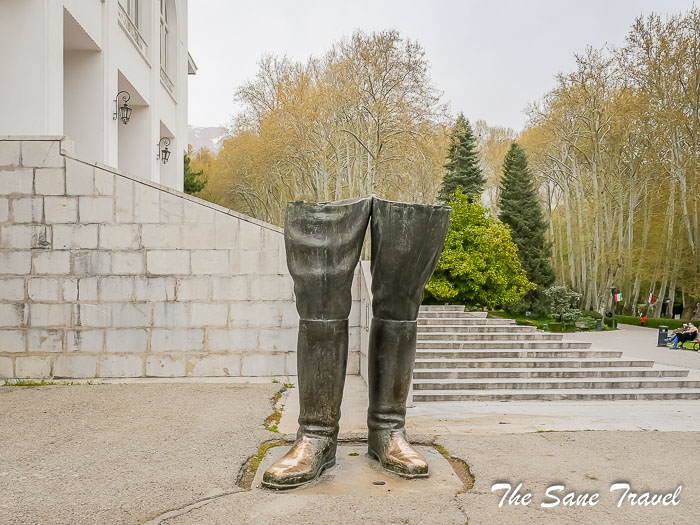 The ceremonies and official affairs were held in this splendid palace.
The ceremonies and official affairs were held in this splendid palace. 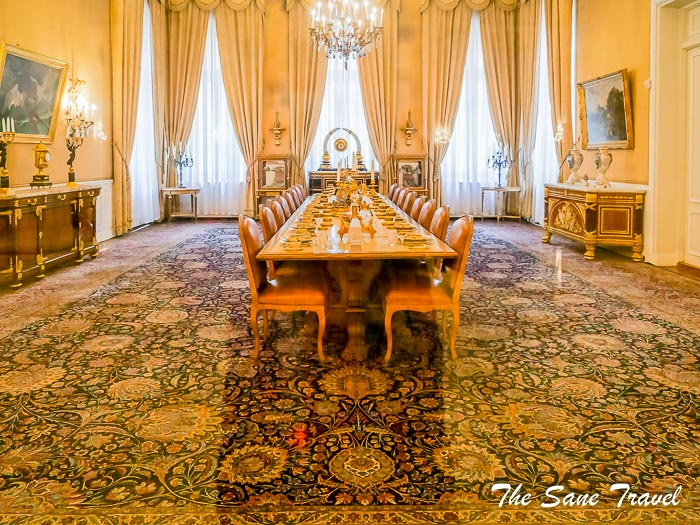
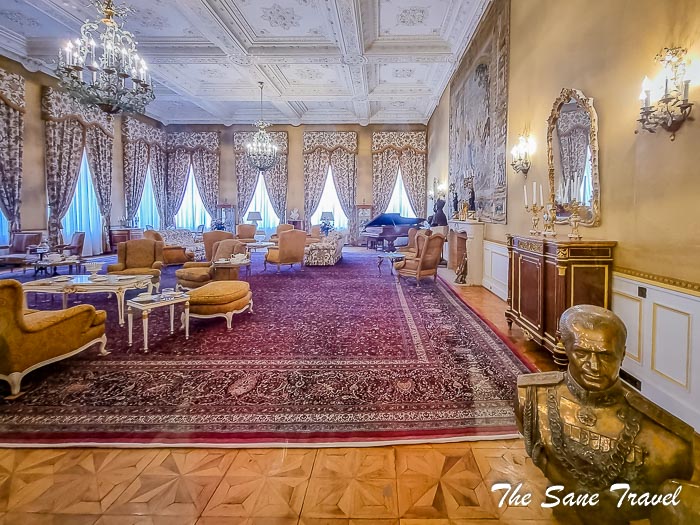
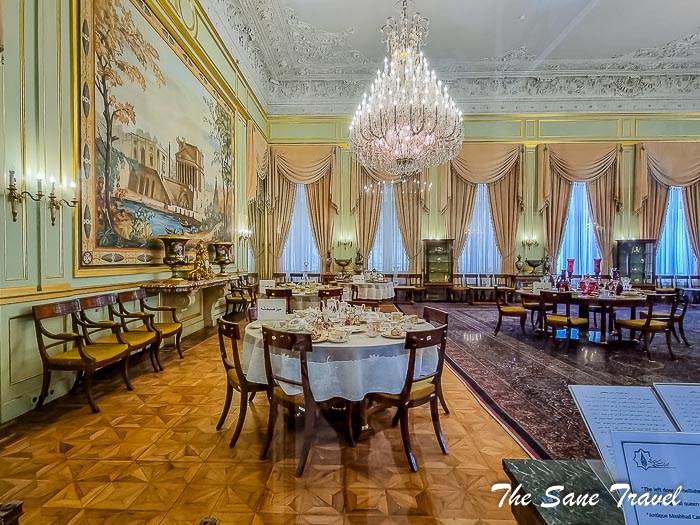 The largest room in the building is the Big Reception Hall which has the biggest chandeliers and carpets. It measures 220 square metres, having the capacity to host more than 100 guests. The walls of the whole complex are covered with magnificent silk and taffeta fabrics. Take your time and roam through the palace and immerse yourself in the splendid beauty.
The largest room in the building is the Big Reception Hall which has the biggest chandeliers and carpets. It measures 220 square metres, having the capacity to host more than 100 guests. The walls of the whole complex are covered with magnificent silk and taffeta fabrics. Take your time and roam through the palace and immerse yourself in the splendid beauty.
The Green Palace
The Green Palace, located at the top of the hills overlooking the White Palace, is entirely made of onyx; the green dominates the pavilion.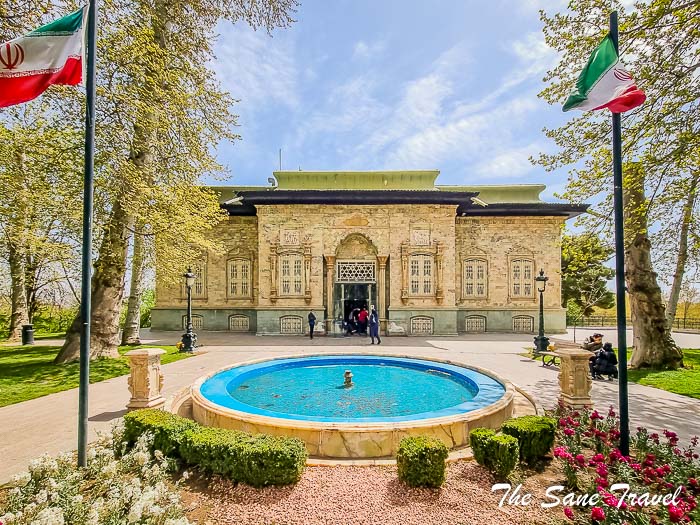 See the mosaics rooms of mirror shards housing collections of carpets, furniture, and other precious objects.
See the mosaics rooms of mirror shards housing collections of carpets, furniture, and other precious objects.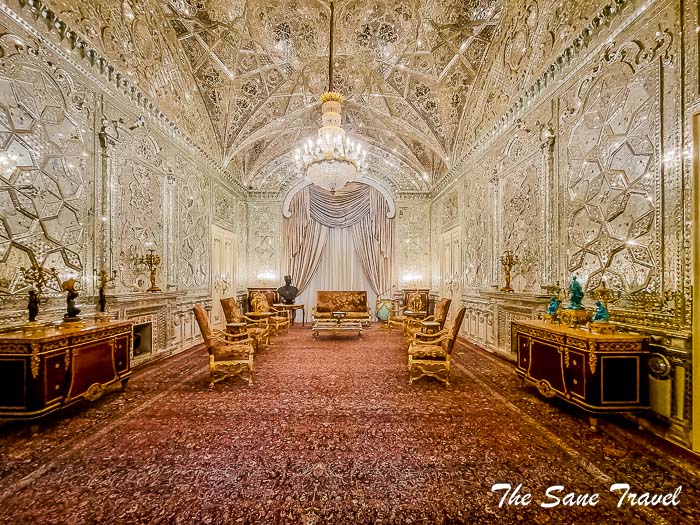
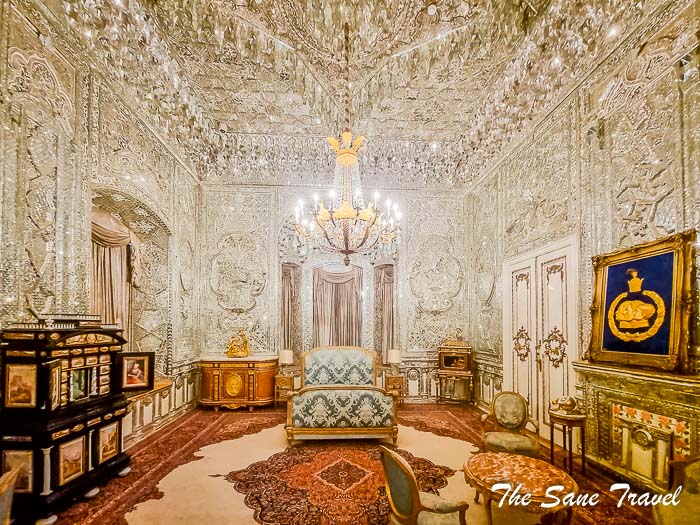
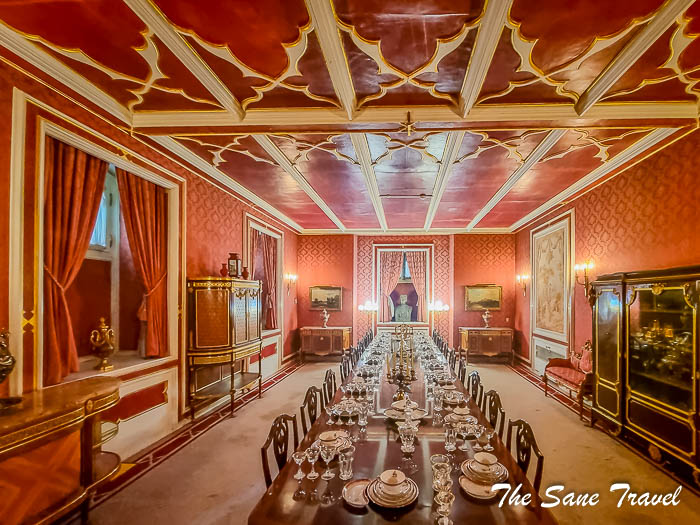 There are two entrances to the complex: the Darband gate in the north and the Zaferanieh gate in the south.
There are two entrances to the complex: the Darband gate in the north and the Zaferanieh gate in the south.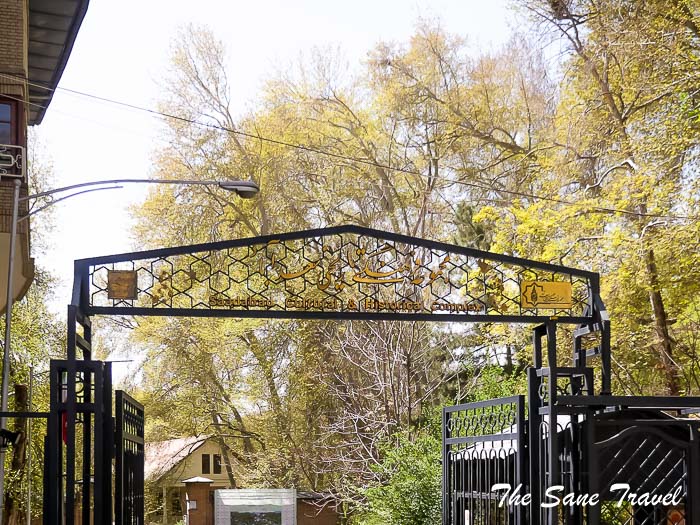
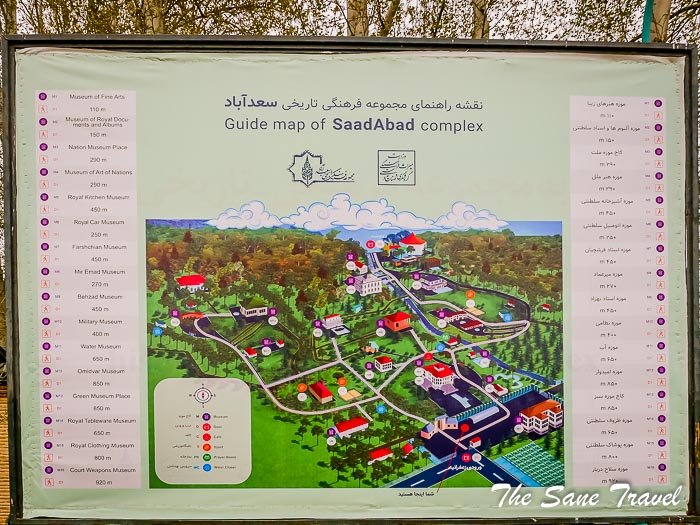
Darband
Darband was a village before it was part of Tehran and is now one of the oldest neighbourhoods in the north of the capital. In Persian, the word Darband means gateway or door to a mountain. Due to Darband’s excellent position, many wealthy people and kings built private summer residences in the area. This area is very popular among tourists and residents of Tehran and is often considered the first option for recreation and tourism.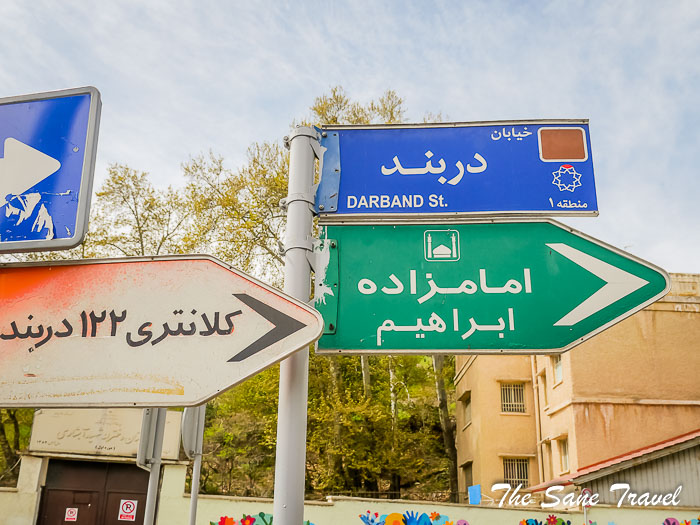 Darband Street starts from Quds Square (Tajrish) at an altitude of 1,600 meters above sea level and ends at Sarband Square at an altitude of 1,800 meters above sea level. Take a look at the famous climber statue at Sarband Square erected fifty years ago, honouring Colonel Amir Shahghadami, who saved a group of American climbers whose plane crashed in nearby mountains.
Darband Street starts from Quds Square (Tajrish) at an altitude of 1,600 meters above sea level and ends at Sarband Square at an altitude of 1,800 meters above sea level. Take a look at the famous climber statue at Sarband Square erected fifty years ago, honouring Colonel Amir Shahghadami, who saved a group of American climbers whose plane crashed in nearby mountains.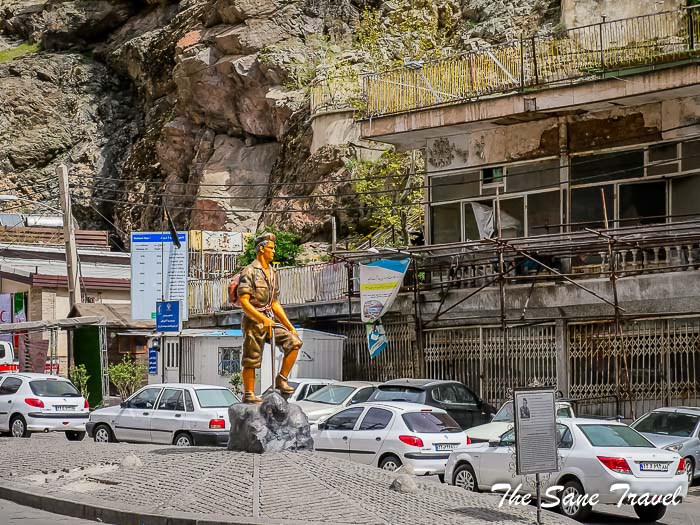 Sarband Square is the access point to the Darband chairlift via elevator.
Sarband Square is the access point to the Darband chairlift via elevator. 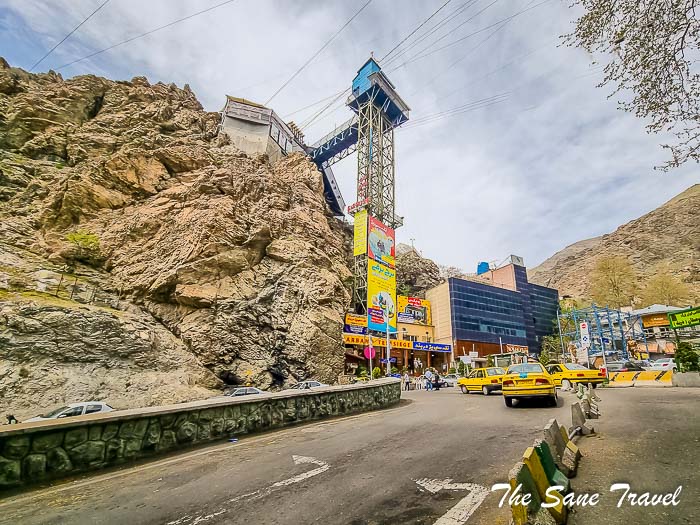 It was initially built for easy commuting of the hikers and the inhabitants of Pas Ghal’eh village forty years ago. Currently, the chairlift is used by both hikers and visitors, who want to combine light hiking with fun at traditional restaurants and teahouses higher up the mountainside. Take the chairlift to admire the beauty of the mountains and have tea up there.
It was initially built for easy commuting of the hikers and the inhabitants of Pas Ghal’eh village forty years ago. Currently, the chairlift is used by both hikers and visitors, who want to combine light hiking with fun at traditional restaurants and teahouses higher up the mountainside. Take the chairlift to admire the beauty of the mountains and have tea up there.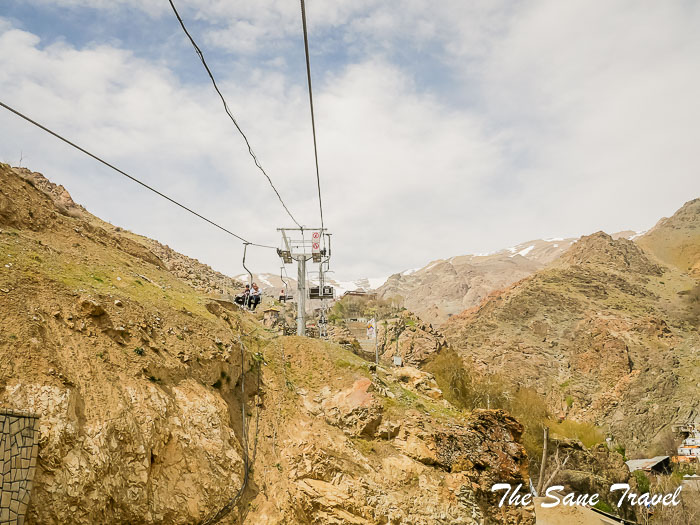
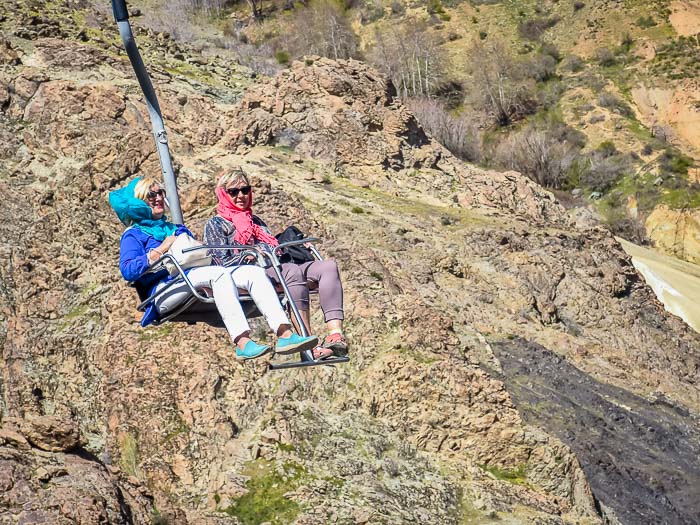
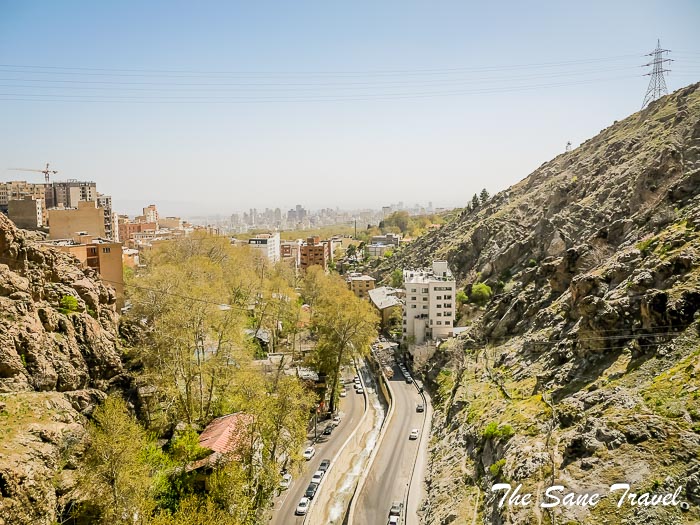
Imamzade Saleh Shrine
Imamzadeh Saleh Shrine is one of the oldest and most famous shrines in Tehran, visited by many people every day. According to the ancient inscriptions, the origin of its construction dates back to the early 13th century. The main structure includes a large rectangular building with thick walls and a spacious interior. The new dome and minarets are being built in front of the previous ones according to the master development plan. Various facilities, including a library, bookstore and parking, are available in the shrine area. 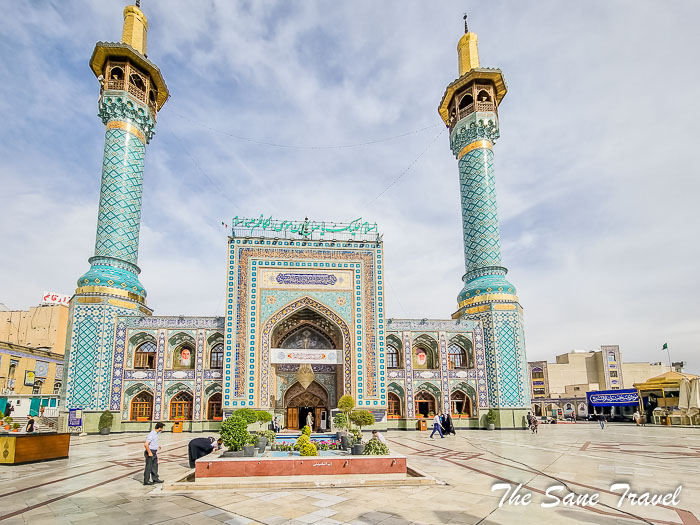
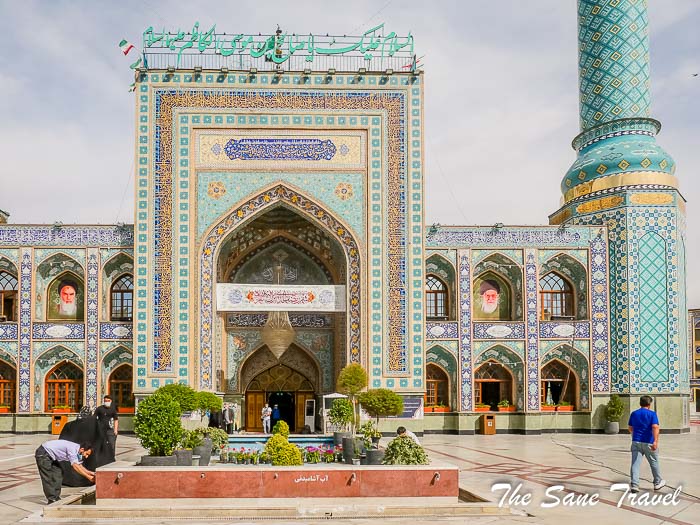
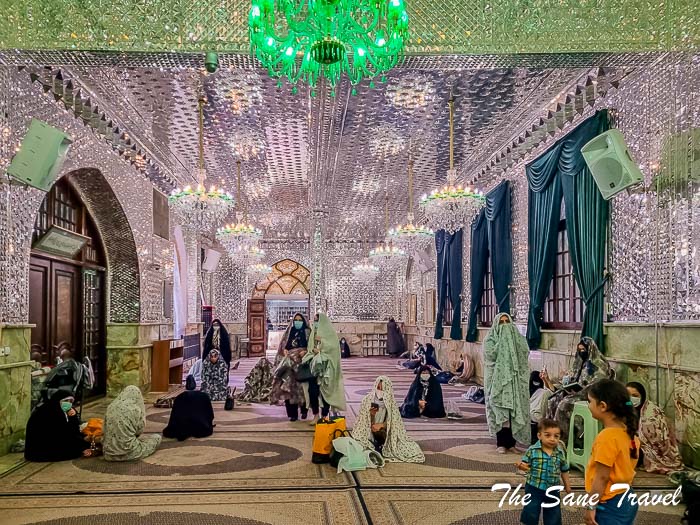
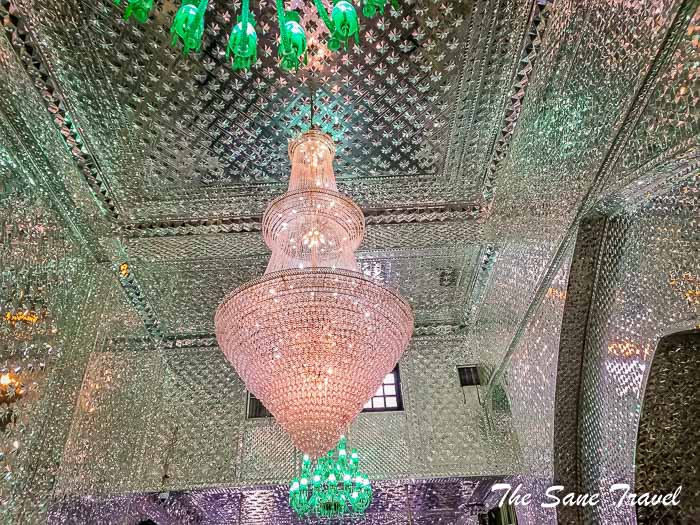
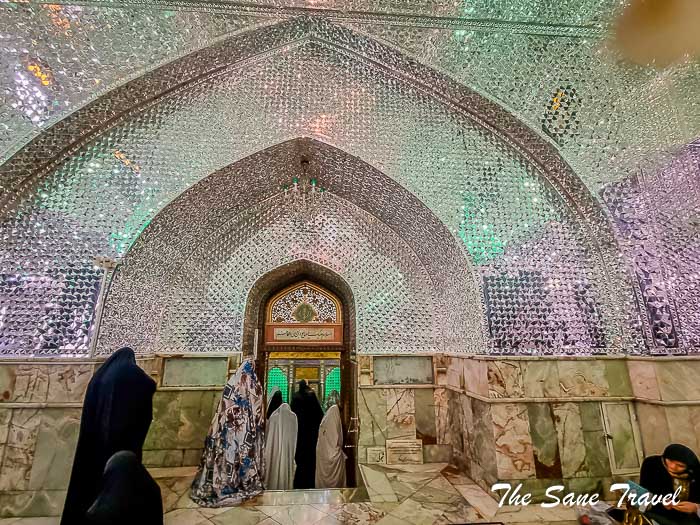 Visitors can also see the graves of several assassinated Iranian nuclear scientists next to the shrine.
Visitors can also see the graves of several assassinated Iranian nuclear scientists next to the shrine.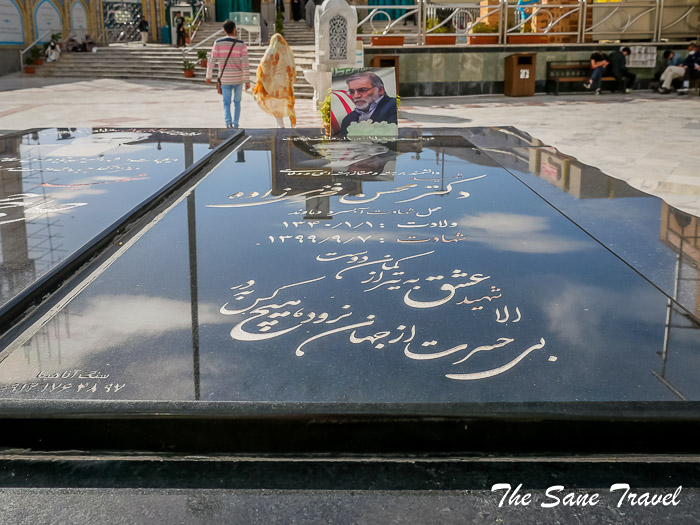
Tajrish Bazaar
Tajrish Bazaar is located on the south side of Tajrish Square and right beside the shrine of Imamzade Saleh. Since it is situated in the vicinity of the mausoleum, many shops deal in religious goods; however, the main part of the bazaar is dedicated to providing the locals with basic products. 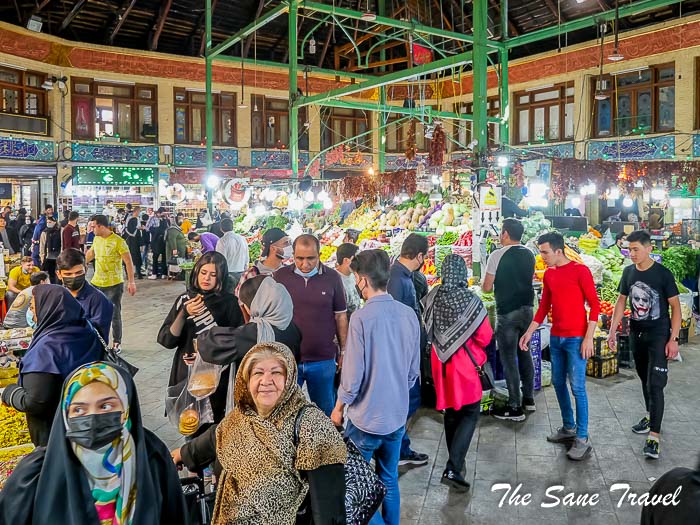
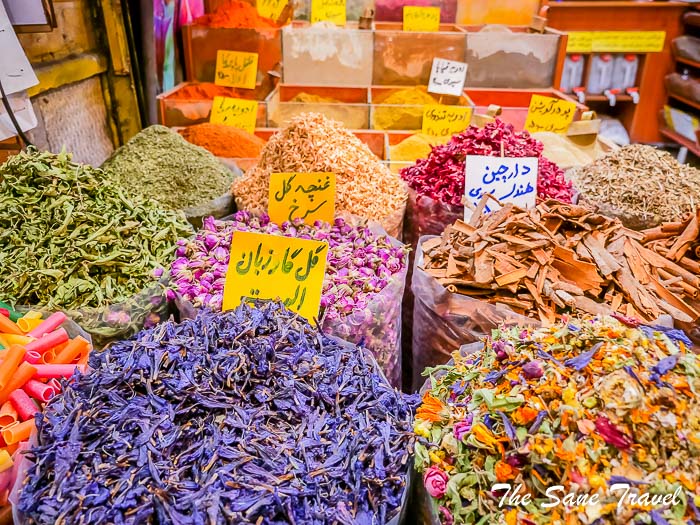
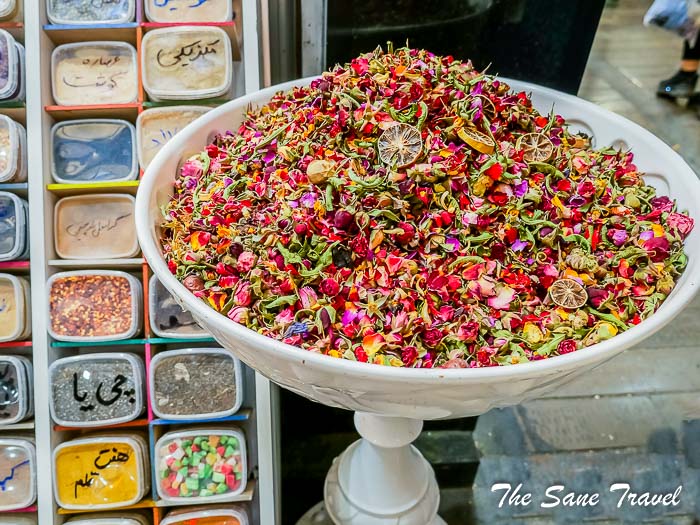 Tajrish Bazaar has more than 400 shops. The bazaar is full of edible and functional goods from nuts to fruits, pickles, spices, and rock candy. Various kinds of pickles, fragrant spices and aromatic herbs, Saffron of supreme quality, a diverse range of fine tobacco, neatly wrapped bundles of fresh vegetables, different berries and other dried fruit, fresh olive of numerous types are available. Nevertheless, shopping in the bazaar is not restricted to edible items only. Even if you are not in the mood for shopping, you can still enjoy the lively atmosphere of the bazaar.
Tajrish Bazaar has more than 400 shops. The bazaar is full of edible and functional goods from nuts to fruits, pickles, spices, and rock candy. Various kinds of pickles, fragrant spices and aromatic herbs, Saffron of supreme quality, a diverse range of fine tobacco, neatly wrapped bundles of fresh vegetables, different berries and other dried fruit, fresh olive of numerous types are available. Nevertheless, shopping in the bazaar is not restricted to edible items only. Even if you are not in the mood for shopping, you can still enjoy the lively atmosphere of the bazaar.
Tabiat Bridge
Tabiat Bridge is the largest pedestrian bridge in Tehran. The 270-metre bridge connects two public parks—Taleghani Park and Abo-Atash Park—by spanning the Shahid Modarres, one of the main highways in northern Tehran. 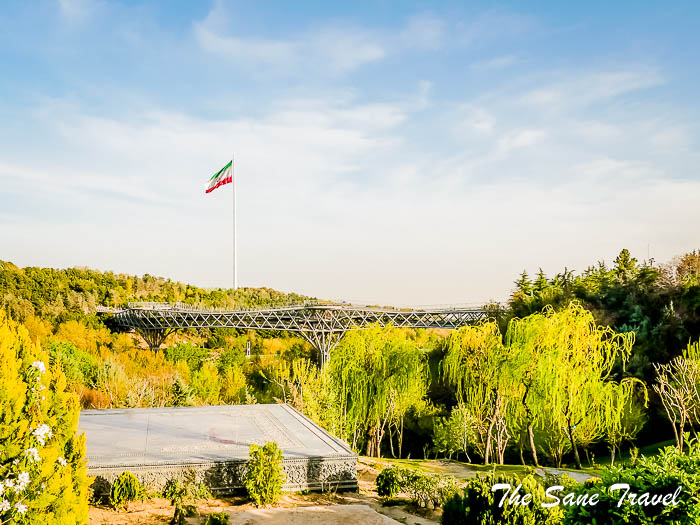 The word tabiat means "nature" in Farsi. The bridge, which opened in 2014, is now called "the third symbol of Tehran”. Architect Leila Araghian designed the bridge in quite a unique way. It consists of three levels that have cafes on one level, space for outdoor activities like jogging, cycling, or walking on the second level and a viewing platform that opens majestic sights of the highway or the Alborz Mountains, which stretches beyond the skyline of Tehran.
The word tabiat means "nature" in Farsi. The bridge, which opened in 2014, is now called "the third symbol of Tehran”. Architect Leila Araghian designed the bridge in quite a unique way. It consists of three levels that have cafes on one level, space for outdoor activities like jogging, cycling, or walking on the second level and a viewing platform that opens majestic sights of the highway or the Alborz Mountains, which stretches beyond the skyline of Tehran.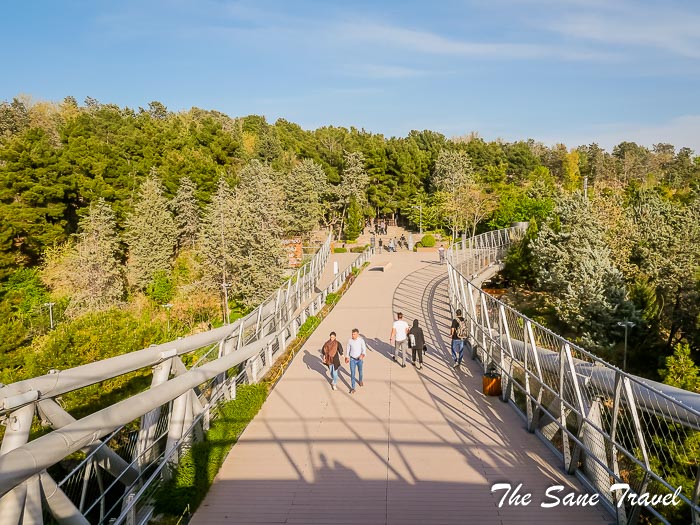
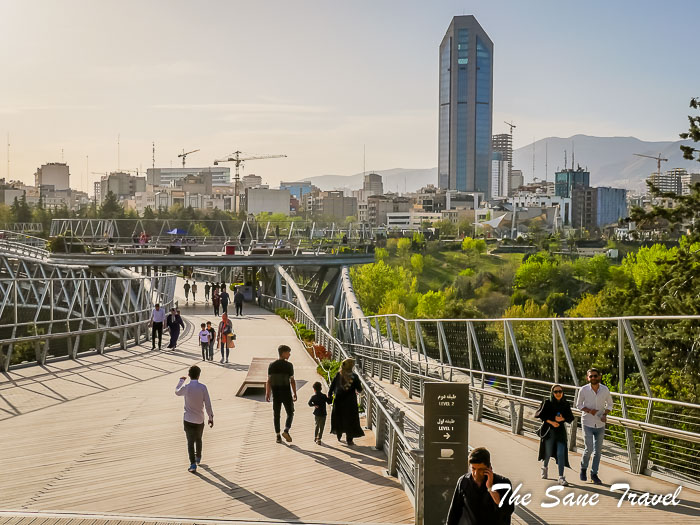
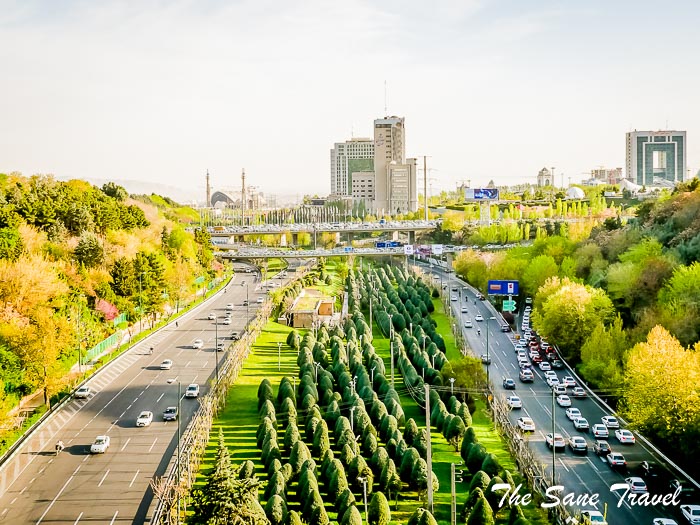
 All the levels of the bridge are connected by stairs and multiple ramps, providing multiple paths throughout the bridge to get from one level to another. In addition, there are many benches and other seating areas on all levels, which make it possible for the users to stay on the bridge for as long as they want to, and enjoy the scenery which they cannot see from any other place. Do not forget to visit parks on both sides of the bridge too.
All the levels of the bridge are connected by stairs and multiple ramps, providing multiple paths throughout the bridge to get from one level to another. In addition, there are many benches and other seating areas on all levels, which make it possible for the users to stay on the bridge for as long as they want to, and enjoy the scenery which they cannot see from any other place. Do not forget to visit parks on both sides of the bridge too.
Milad Tower
Milad Tower, also known as the Tehran Tower, is a multi-purpose tower in Tehran.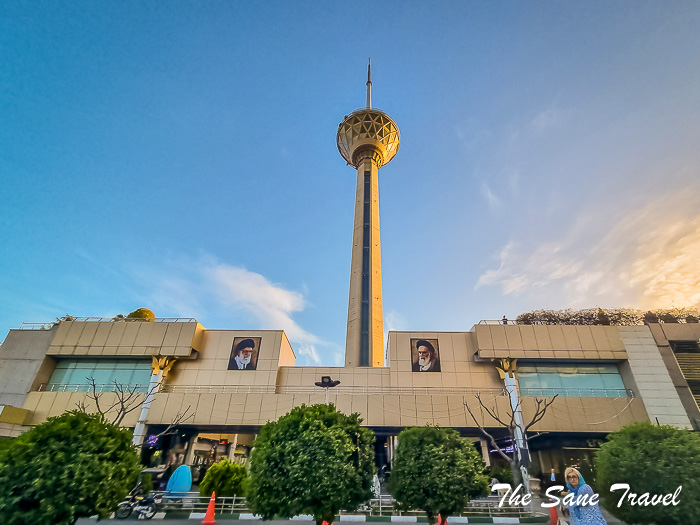
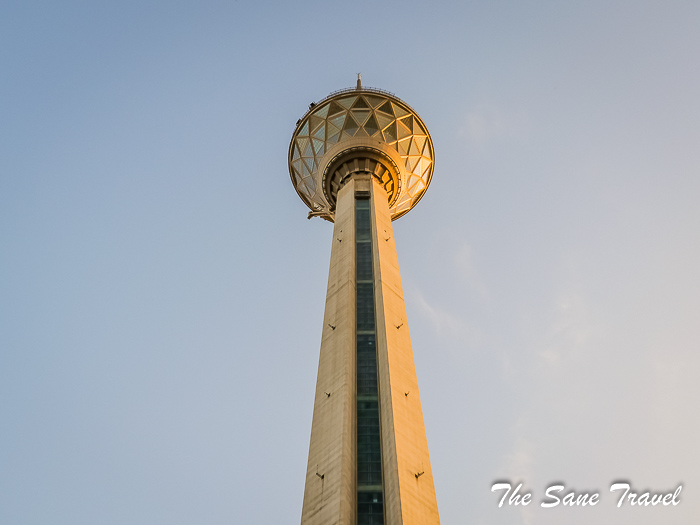
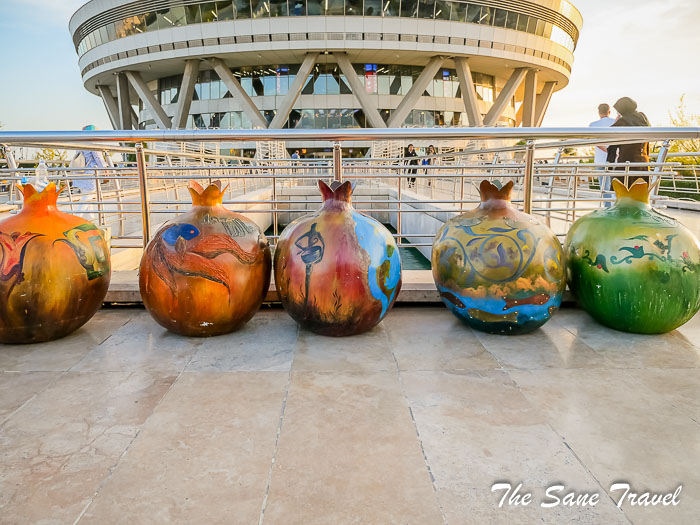 It is the sixth tallest tower and the 17th tallest freestanding structure in the world. It is standing at 435 metres from the base to the tip of the antenna. The tower’s facilities include a dolphinarium, paintball club, shopping centre, cycling road, waterfall, caravanserai, etc. Due to its height and unique appearance, the tower can be seen from every corner of the city, hence it has become one of the symbols of the capital. A revolving restaurant, a VIP restaurant, a closed observation deck, a skydome, an open observation deck, a public art gallery, and a cafeteria are just some of the attractions at the tower. Try to visit the tower before the sunset to have both day and night views from the top.
It is the sixth tallest tower and the 17th tallest freestanding structure in the world. It is standing at 435 metres from the base to the tip of the antenna. The tower’s facilities include a dolphinarium, paintball club, shopping centre, cycling road, waterfall, caravanserai, etc. Due to its height and unique appearance, the tower can be seen from every corner of the city, hence it has become one of the symbols of the capital. A revolving restaurant, a VIP restaurant, a closed observation deck, a skydome, an open observation deck, a public art gallery, and a cafeteria are just some of the attractions at the tower. Try to visit the tower before the sunset to have both day and night views from the top.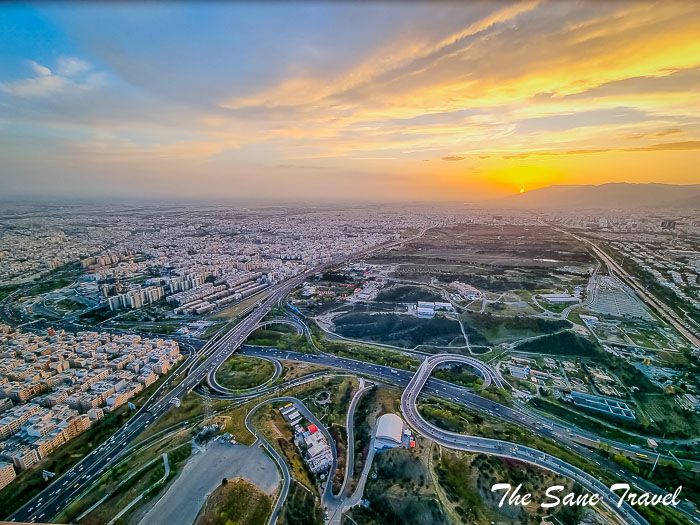
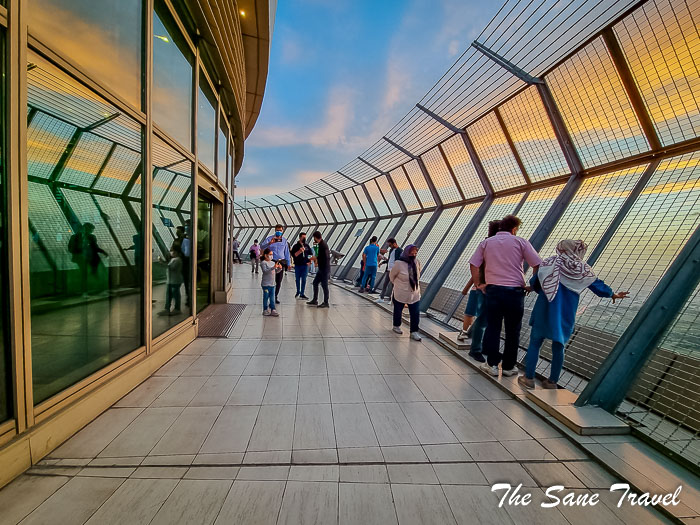
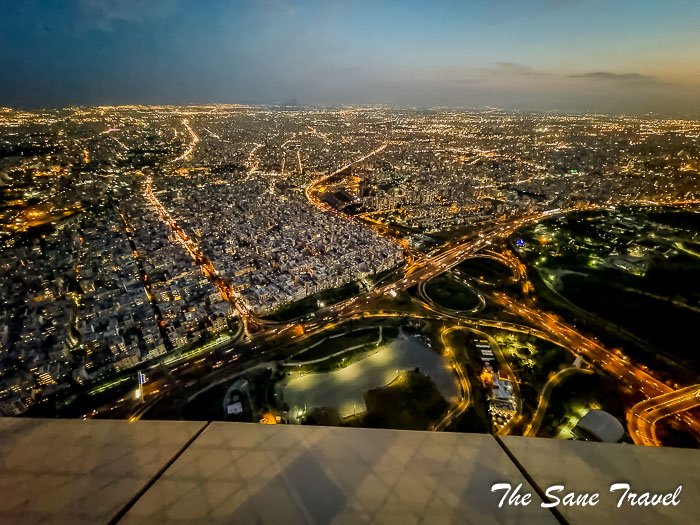
How to get around Tehran
Visiting Tehran can be exhausting because of the frequent traffic jams and the hectic traffic. One way to avoid it is to use the Tehran metro with 126 stations. Tehran Metro is clean, cheap, and modern. It covers almost all attractions and works from 5 a.m. till 11 p.m. Out of respect for women, the first and the last carriage is for ladies. Women can use the mixed carriages as well. The announcements are in Farsi, but the metro maps in both English and Farsi can be found above every second door, so if you can’t understand the station calls, these maps might be useful. During morning and evening rush hours, the trains are packed, maybe even too packed to feel comfortable; keep a close eye on your possessions.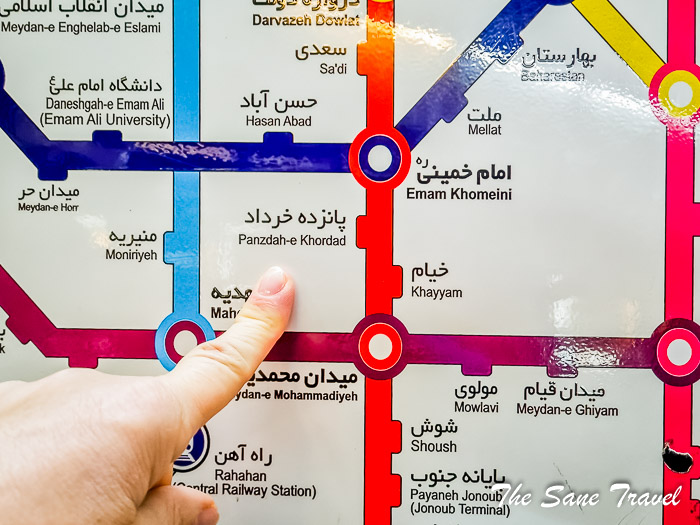
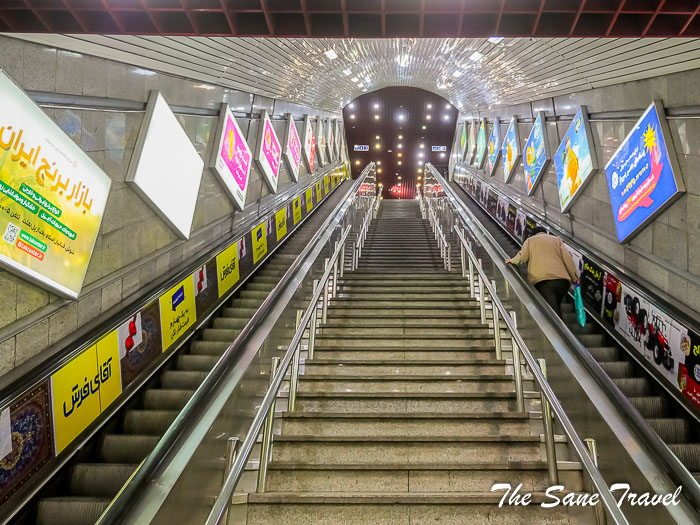
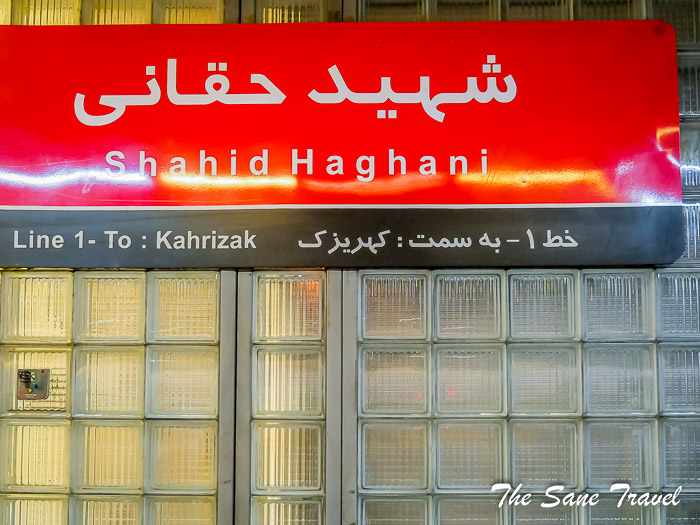 Taxis in Tehran are cheap, but they have no meters and accept only cash. So always ask how much is your trip before boarding. Also, have your destination written in Farsi because most of the drivers do not speak English. A Snapp application is also available in Tehran, something like local Uber or Bolt. It is even cheaper than a regular taxi but not always easy to use because of an apparent driver-passenger language barrier.
Taxis in Tehran are cheap, but they have no meters and accept only cash. So always ask how much is your trip before boarding. Also, have your destination written in Farsi because most of the drivers do not speak English. A Snapp application is also available in Tehran, something like local Uber or Bolt. It is even cheaper than a regular taxi but not always easy to use because of an apparent driver-passenger language barrier.
Like it? Pin it!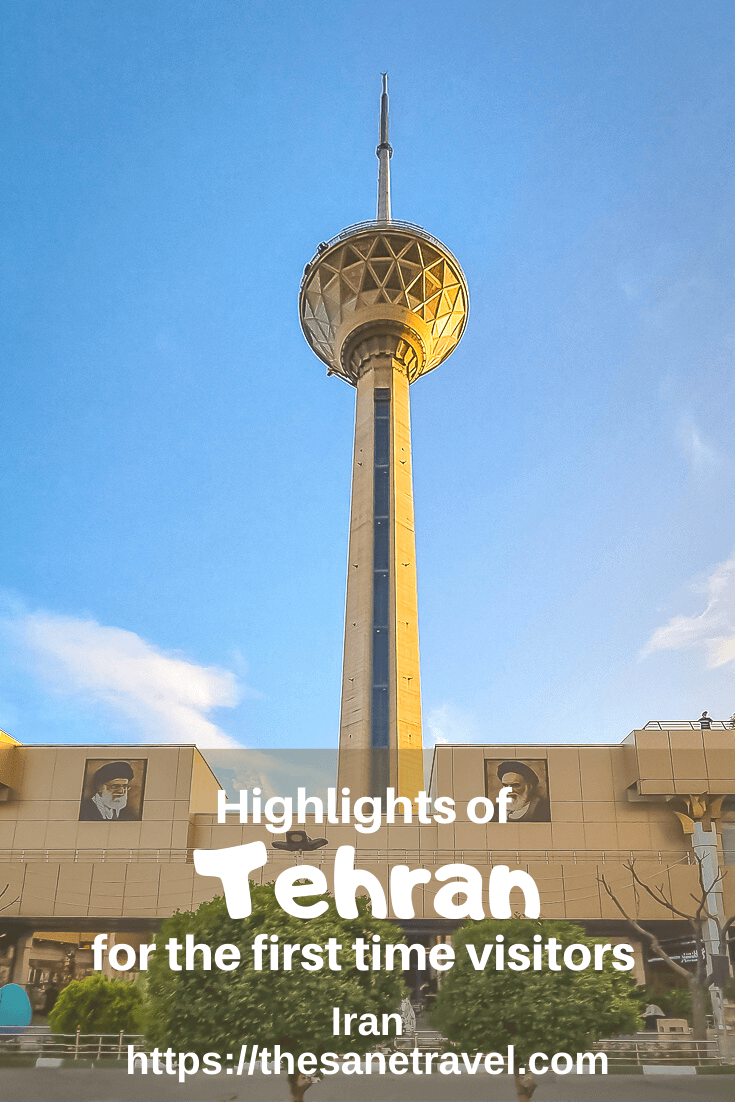
I didn't visit but you may also want to include Azadi Tower and the Niavaran palace complex in your itinerary.
What did you think? Have you visited Iran and Tehran? I’d love to hear from you so please add your comment below.
Author: Anita Sane
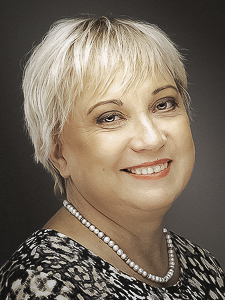
About the author
Anita is a part-time traveller, passionate photographer and a retired career woman from Latvia, travelling mostly solo for more than 15 years. She is a skilled travel planner who plans and executes her travels by herself. Anita wants to show you how to travel the world and open your mind to new experiences. Follow her on Facebook, Instagram, Pinterest, Twitter and Bloglovin.






Report
My comments